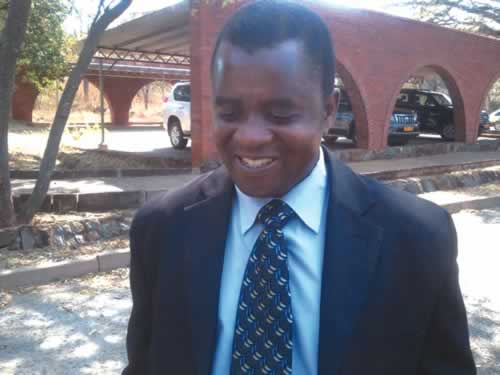
The Sunday News

Jonathan Thompson
LAST Wednesday the Real Estate industry was invited to a local hotel in Bulawayo, for a seminar put on by the Ministry of Finance and Economic Development.
As Registered Estate Agents, we are required to achieve a certain number of hours of Continued Professional Development (CPD). Real Estate seminars and workshops were a regular part of our lives, before Covid-19. This seminar may have been the first one in Bulawayo for the past three years. There was a small sense of “getting back to normal”, in this (hopefully) post-Covid world. Old friends and colleagues greeted each other, and were happy to spend time together. It was also a pleasure to learn new skills, which are vital to the financial safety of our country.

Covid-19
At the seminar, we were introduced to the Financial Investigation Unit (FIU). One of their big responsibilities is to ensure that the financial institutions of Zimbabwe are not being abused by criminal or terrorist groups, who would try to “launder money”.
Money laundering is the act of taking proceeds of criminal activities and then concealing or disguising the true nature of the funds, causing the money to appear to be acquired legally.
Laundering is a process of taking “dirty money”, or illegal proceeds, and turning it into “clean money”. A big problem with allowing money laundering is that it encourages criminal elements to affect the economy, giving them more access, more power and more control. The nations of the world have begun to work together to stop money laundering. We were told that in the Southern Africa region, Zimbabwe is one of the leaders in anti-money laundering compliance.
The Ministry of Finance spent the week in Bulawayo to train and educate the various financial sectors in how to calculate risk, how to recognise a potential money laundering event, how to keep records, and how to work hand-in-hand with the Financial Investigation Unit in preventing money laundering and the financing of terrorism. Some of the sectors that were included were, but not limited to, banks, micro-finance, real estate, law firms, casinos, and others.

Thompson Properties (Pvt) Ltd
As Registered Real Estate agents, we were given the following guidelines. We need to know our clients. With that we collect copies of IDs and other details. We need to watch for unusual financial activities. We need to understand who is buying and who is selling a property. Establishing ownership has always been key, but now even more so. Does the property purchase match the client, the client’s funds, and the client’s needs? We were told to watch for clients who unexpectedly change or cancel deals, without cause. We need to setup new risk assessment policies. We need to keep records. We need to teach our teams to understand these guidelines. By following these guidelines, we can protect the Real Estate industry in particular and the Zimbabwean economy, as well.
We were warned that “Real Estate money laundering schemes are estimated to reach 51,6 trillion US dollars a year, worldwide.
We all need to do our part to assist in stopping money laundering and the funding of terrorist activities. So the next time you stop in to your local Real Estate agent, you may notice that a few extra questions are asked, remember this is a vital step to protect us all.
Jonathan Thompson is a Registered Real Estate Agent who works in Bulawayo. He has nine years of experience in Real Estate in the USA, and another 11 years experience in Bulawayo. He is the founder and the Managing Director of Thompson Properties (Pvt) Ltd.



